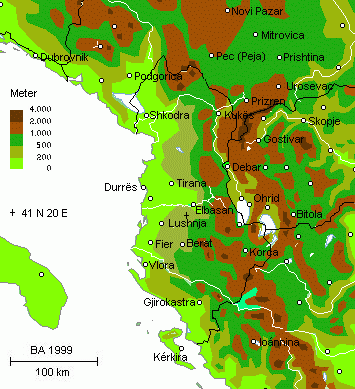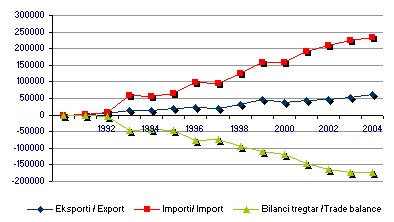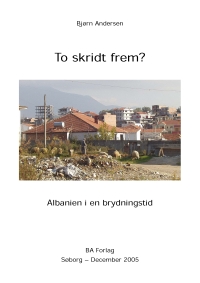Sidste Nyt fra Albanien, Kosóva og Makedonien
The Latest News from Albania, Kosóva and Macedonia
# 297 - 8' årgang - 31.03.2006
Version 1.1 •
PDF for printing •
Info om »Sidste Nyt«
Udgiver:
Bjørn Andersen
Publisher:
Bjoern Andersen

10.03.2006. Nyligt møde mellem Balkan-Udenrigsministre og den Østrigske UM: Besnik Mustafaj (Albanien), Dr Ilinka Mitreva (Makedonien), Dr.jur. Ursula Plassnik (Østrig), Kolinda Grabar-Kitarovic (Kroatien), Vuk Draskovic (Serbien-Montenegro)
![]()











